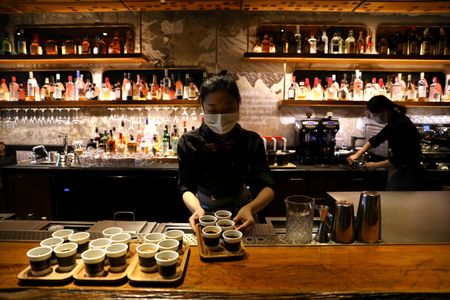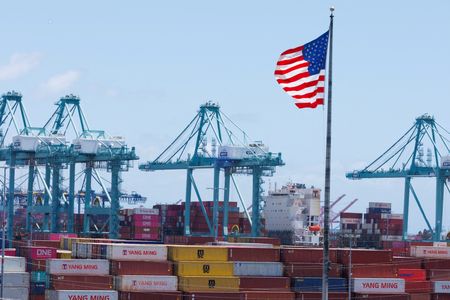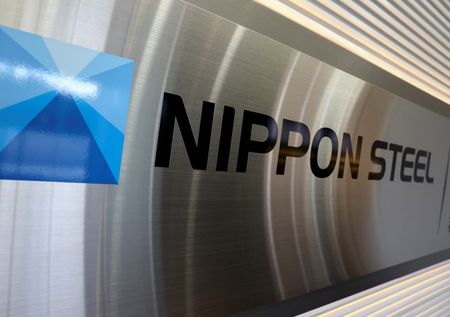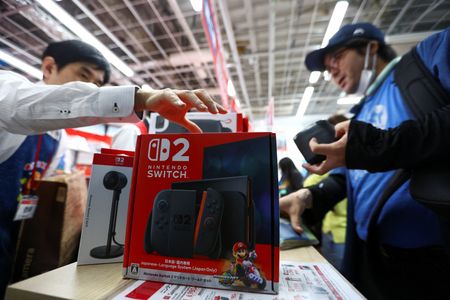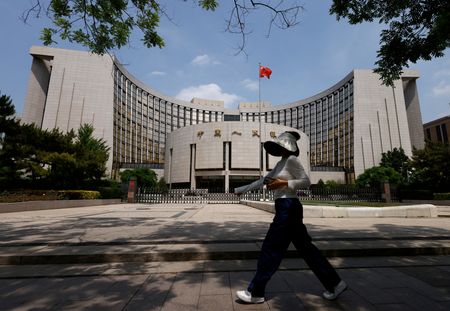By Kane Wu and Julie Zhu
HONG KONG (Reuters) – KKR & Co, Fountainvest Partners and PAG are among buyout firms interested in acquiring a stake in Starbucks’ China business, four sources said, as the U.S. coffee chain looks to revive flagging sales in its second-largest market.
Chinese companies, including state-owned conglomerate China Resources Holdings and food delivery giant Meituan, have also been approached as potential buyers, said one of the sources with knowledge of the matter.
Starbucks’ executive vice president and chief financial officer, Rachel Ruggeri, is expected to be among senior company executives visiting China in the coming weeks to hold sale talks, said two of the four sources.
All the sources spoke on condition of anonymity as the information is not public yet.
The talks come as Starbucks CEO Brian Niccol, who took the top job at the coffee chain in August, faces the daunting task of steering the company back to growth amid falling demand in the U.S. and China as well as a decline in its share price.
Starbucks said on Monday it would eliminate 1,100 corporate roles as Niccol’s “Back to Starbucks” plan focuses on streamlining business through job cuts and by improving customer experience at its U.S. stores.
The size of the stake to be sold in Starbucks’ China business has not been determined and would be subject to negotiations, the sources said. The names of the interested bidders have not been previously reported.
The Seattle-based company would likely prefer a franchisee deal with a strategic partner as part of a stake sale plan, said two of the sources. In a franchisee deal, Starbucks China would be valued at more than $1 billion, they added.
A Starbucks spokesperson declined to confirm the content of the story and referred Reuters request for comment to Niccol’s remarks on China at the earnings call in January, after his first market visit to China.
Niccol said at the time that he saw several near-term changes Starbucks could make to strengthen its business while continuing to explore strategic partnerships to grow in China.
KKR, PAG and China Resources declined to comment, while Fountainvest and Meituan did not respond.
TOUGH COMPETITION
Starbucks is aiming to reach a deal for its China business by the end of this year, although the structure of the potential transaction has not been finalised and is subject to changes, two of the sources said.
In China, the chain is dealing with sluggish economic growth and stiff competition from local brands such as Luckin Coffee, which has gained market share with cheaper products and wider coverage in lower-tier cities.
Starbucks has been in informal talks with several private equity firms and companies since the second half of 2024 about strategic options for its business in China, home to more than a fifth of all Starbucks stores, the sources said.
In November last year, Starbucks said that it was exploring strategic partnerships for its Chinese operations after a media report said the company was considering selling a stake in the business to a local partner.
Starbucks’ plan for a franchisee deal, if finalised, would follow the model adopted by U.S. fast-food chain Yum Brands a few years ago, said two of the sources, amid cutthroat competitive pressure in the world’s second-largest economy.
Primavera Capital and Ant Financial in 2016 bought a stake in Yum’s China business, resulting in Yum China’s separate listing and its role as a franchisee of the KFC, Pizza Hut and Taco Bell fast-food brands.
In China, a slowdown in the economy and sluggish consumer appetite have led to deflationary pressures across the board, but especially in the country’s food and beverages sector.
The rise of low-cost local chains – such as Mixue Bingcheng, Luckin and Cotti, which serve up tea, fruit and coffee drinks for less than 10 yuan ($1.38) and have rapidly expanded their franchise models – has weighed on foreign firms’ market share.
An espresso at a Starbucks in China costs 19 yuan.
Global players such as Starbucks and Yum have been trying different ways, from distributing coupons to offering smaller meal sizes, to lower prices without compromising brand image.
Despite those efforts, Starbucks’ comparable sales in China declined for four straight quarters, falling 6% in the quarter that ended December 29, 2024.
(Reporting by Kane Wu and Julie Zhu in Hong Kong; additional reporting by Casey Hall in Shanghai; Editing by Sumeet Chatterjee and Himani Sarkar)

